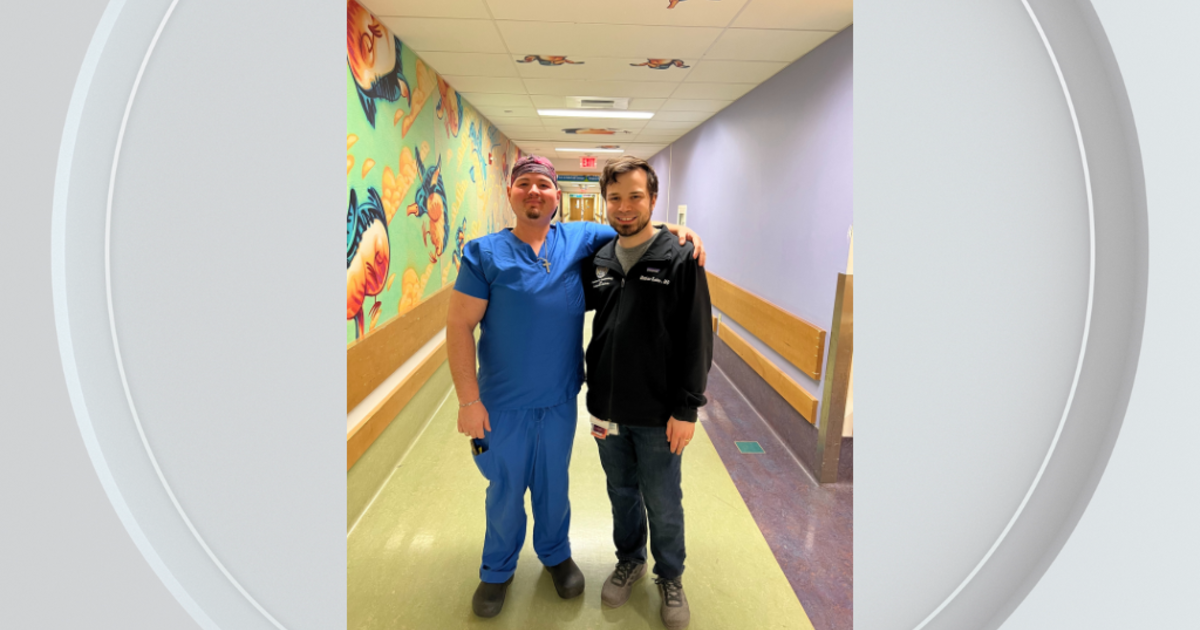New Treatment Helping More Women Survive Ovarian Cancer
PITTSBURGH (KDKA) - Every year, nearly 22,000 women are diagnosed with ovarian cancer and more than 14,000 die from it.
Now, a relatively new treatment is helping more women survive it.
Taking care of seven dogs and two grandchildren has been a challenge for Carol Demalon. She was diagnosed with stage four ovarian cancer six years ago.
"They finally did a CT scan, and we probably weren't home an hour after I got the CT scan, and said, 'We need to admit you to the hospital,'" Demalon said.
She was treated with surgery and chemotherapy, which is the standard approach to ovarian cancer.
"You're nauseated, you're tired, you're fatigued," she said. "It's debilitating, It really is. It takes a lot out of you."
Then, because she has a BRCA mutation, she was put on a medicine called a PARP inhibitor. It was FDA-approved a year-and-a-half ago.
"Looking at what drugs I've already tried, and with the gene mutation we have, he felt the PARP inhibitors would be a good thing to take a look at," Demalon said.
PARP (poly ADP-ribose polymerase) is an enzyme important to DNA repair. As cancer cells rapidly divide, there is a lot of DNA damage. If you inhibit PARP, the DNA can't be repaired, and cancer cells die.
PARP inhibitors are for women with the BRCA mutations, because PARP is the key repair enzyme in those cases.
"We're really starting to match a patient's tumor and their genes to the treatment," Dr. Thomas Krivak, of Allegheny Health Network, said.
Even after numerous rounds of chemotherapy, about 30-40 percent of patients respond to this type of medicine, compared to the 10-20 percent with just chemo and surgery. And their cancer recurrence is delayed by a year to a year-and-a-half.
"Some of the dramatic responses we've seen has gotten people excited about these," Dr. Krivak said.
At first, these drugs were given to only the sicker patients, but they're moving earlier in the course of treatment.
Current research may eventually lead to use by everyone with ovarian cancer, regardless of their BRCA status. The mutation affects only 10-15 percent.
Two drugs are FDA approved and two more are expected to be approved soon.
Side effects include low blood counts and fatigue.
And there's the expense - $130,000 a year.
"It was approved through the insurance company that I could take it, which is always a big hurdle to get over," Demalon said.
"I've not had a patient who needed to be treated with a PARP inhibitor be declined, which is very nice. The companies have been very generous with patient assistance programs, because I think they've seen how well these drugs work," Dr. Krivak said.
Demalon goes about life as usual, with an occasional visit to Dr. Krivak to watch her cancer marker numbers and to get a refill on her medicine.
"My PET scans showed there's really no tumors that they can identify," she said. "Nice to see your grandkids get a little bit older and be able to play with them. They have a lot of energy, and that's something I don't necessarily have."
Join The Conversation On The KDKA Facebook Page
Stay Up To Date, Follow KDKA On Twitter



